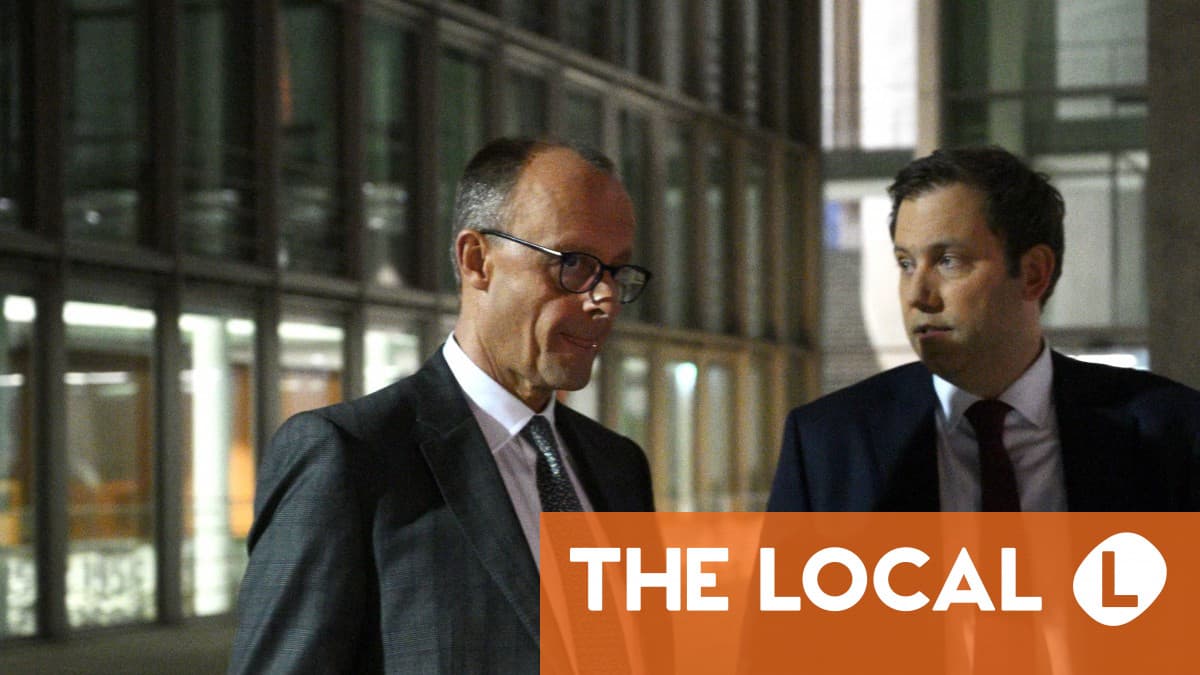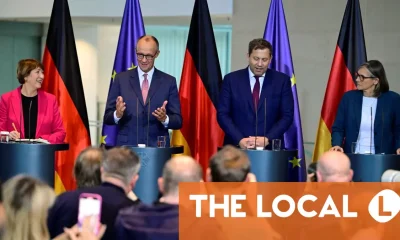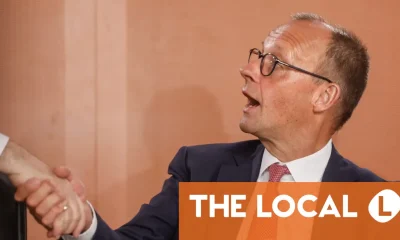The two parties are in talks on forming a coalition government after last month’s general election, which have been given new urgency by US President Donald Trump’s clash with Ukrainian President Volodymyr Zelensky and the freezing of American military aid to Kyiv.
Merz said at a press conference that the two parties would bring proposals to parliament within the next week to exempt more defence spending from Germany’s constitutionally enshrined “debt brake”.
He vowed to do “whatever it takes” when it comes to defence “in light of threats to our freedom and peace on our continent”.
It would be a dramatic departure for a country that has spent decades under the American security umbrella.
The proposals would also mark a “sea change” and “a major loosening of Germany’s fiscal straitjacket”, said Berenberg bank economist Holger Schmieding, noting the country’s long-standing avoidance of large public debts.
READ ALSO: What is Germany’s debt brake and how does it affect residents?
Merz’s plans would see defence spending exempted from the country’s debt brake when it exceeds one percent of GDP — or €45 billion when applied to the current size of Germany’s economy.
Merz also said the two parties wanted to bring in “a special fund of €500 billion for the next 10 years” for investment in infrastructure, something the SPD has been pushing for.
Advertisement
The fund would be aimed at kick-starting Germany’s moribund economy, which is threatened with a third straight year of recession.
The proposals would also mean that Germany’s federal states, which are currently not allowed to run budget deficits, could take out debt equivalent to 0.35 percent of GDP.
Merz also said he wanted to get immediate approval for a three-billion-euro aid package for Ukraine that has been held up for weeks.
He said he would meet outgoing Chancellor Olaf Scholz on Wednesday “to speak about the urgent help needed for Ukraine, around €3 or €3.5 billion, which… can be approved now as off-budget expenditure”.
Speaking alongside Merz, CSU leader Markus Soeder said the parties were “sending a message to our enemies and our friends: Germany is here and is not pulling back”.
He said “old certainties had been recast” in recent weeks and “many of us have had our basic trust in America deeply shaken”, even those like himself who had “believed in the US’s moral leadership role since I was a child”.
READ ALSO: Can Germany’s next leaders reach a deal on immigration, benefits and the economy?
‘Really big bazooka’
Merz’s promise of “whatever it takes” recalled the pledge made in 2012 by the then president of the European Central Bank (ECB) Mario Draghi during the sovereign debt crisis.
Schmieding described Merz’s plans as “a really big bazooka”, also harking back to the phrase used to describe the ECB’s interventions under Draghi.
The CDU/CSU and SPD are at pains to rush the new financing through the outgoing parliament, where they have the necessary two-thirds majority together with the Greens.
While the Greens are not part of talks to be in the next government, they are staunch supporters of Ukraine and of more funding for infrastructure, so could be brought on board with the spending plans.
CSU leader Markus Söder, CDU leader Friedrich Merz and SPD leader Lars Klingbeil hold a joint press conference on the new debt deal on Tuesday in Berlin. Photo: picture alliance/dpa | Kay Nietfeld
However Katharina Droege, co-leader of the Greens parliamentary group, told ARD television that the party would “not support anything automatically” and wanted to see more in the package aimed at climate protection.
The clock is ticking: At the end of the month the new parliament will convene in which the far-right Alternative for Germany (AfD) and the far-left Linke will together be able to veto the sweeping changes Merz has proposed.
When it comes to defence spending, German media reports suggest that €200 billion to €400 billion would be needed to bring Germany’s threadbare armed forces up to scratch.
READ ALSO: Conservatives float plans to bring back military service in Germany
Manuela Schwesig from the SPD’s negotiating team told the ARD TV channel that the proposals set on Tuesday foresaw defence spending “rising to at least €100 billion per year”.
Current Defence Minister Boris Pistorius hailed the plans as a “historic day for the army and for Germany”.
The proposals would mean Germany being able to play “a leading role along with others” in European security, he told the Spiegel newspaper.
Advertisement
While the CDU/CSU alliance has emphasised the need to boost Germany’s defence, the Social Democrats also emphasise the need to pay for investment and social services.
SPD leader Lars Klingbeil spoke of the need for massive investment in a country whose infrastructure had been degraded by years of “wear and tear”.





































